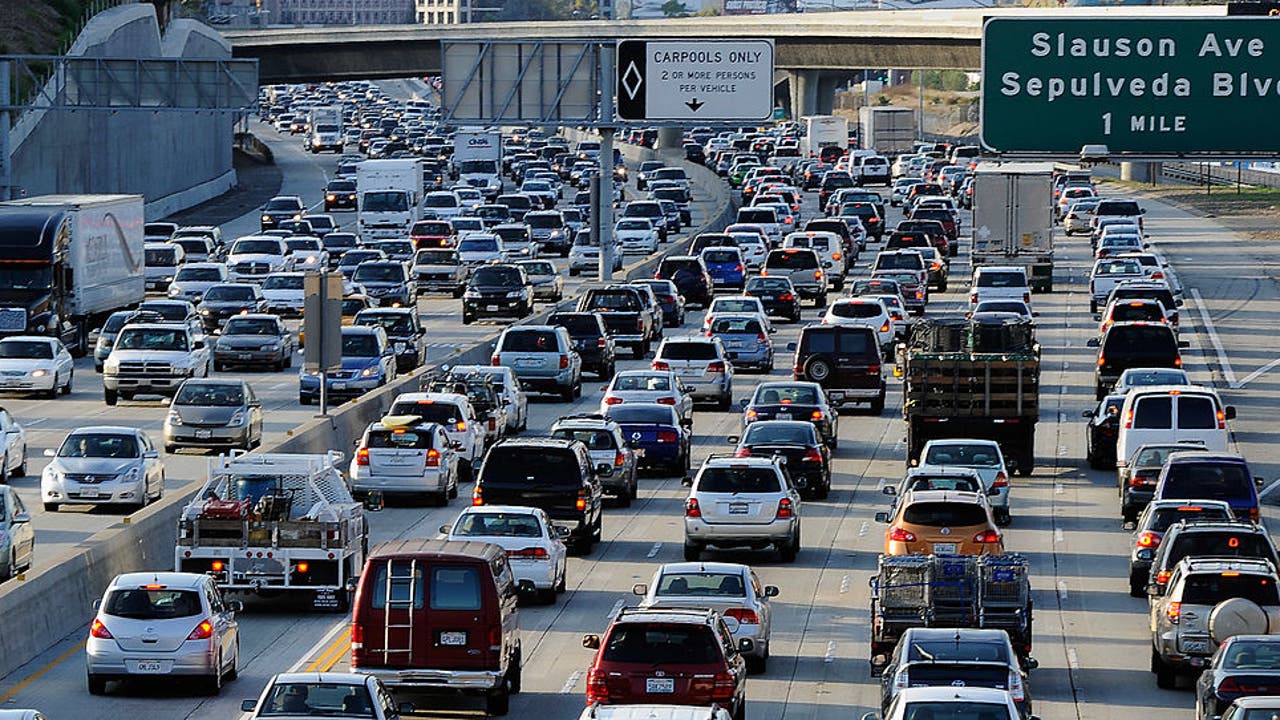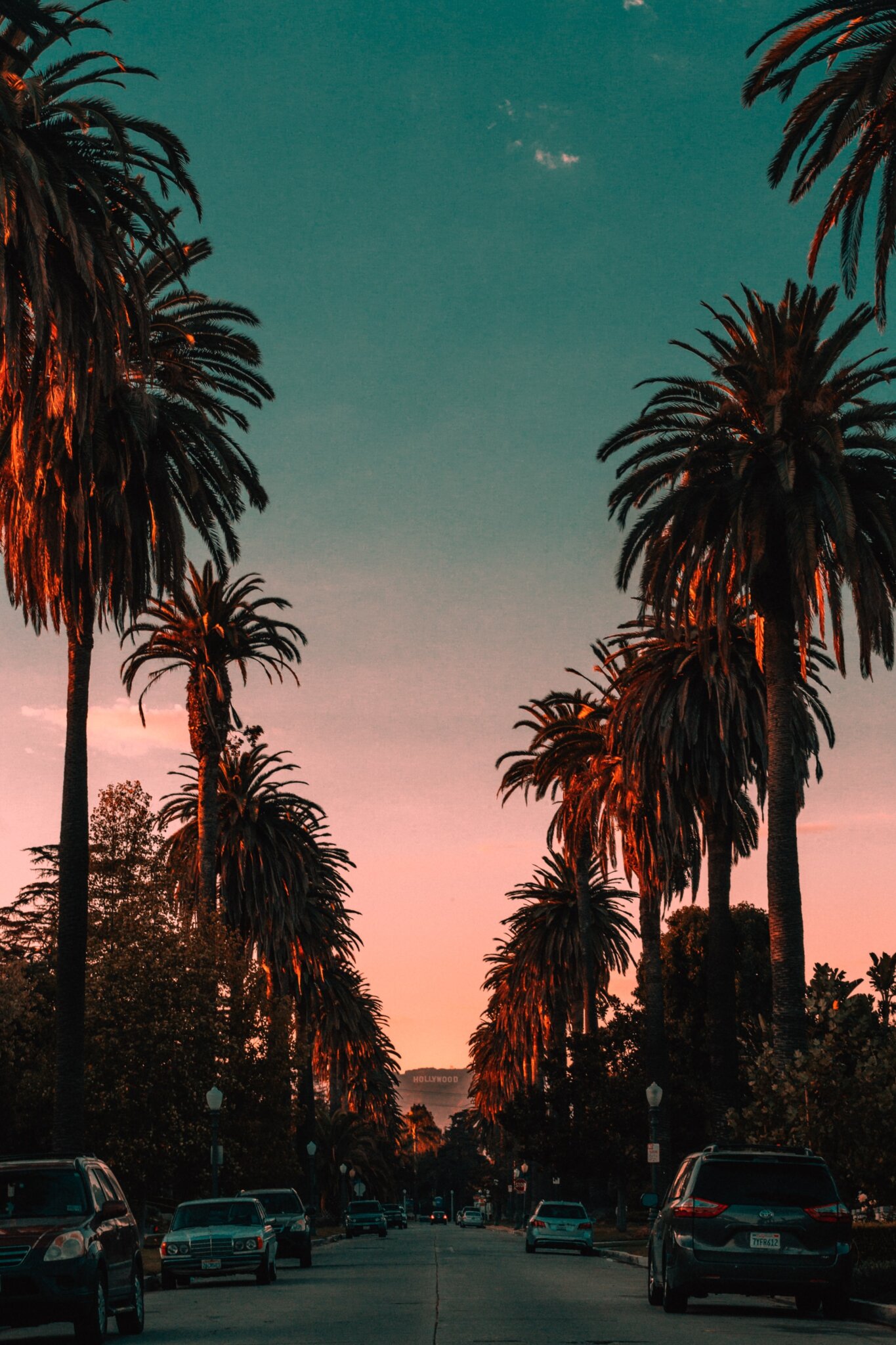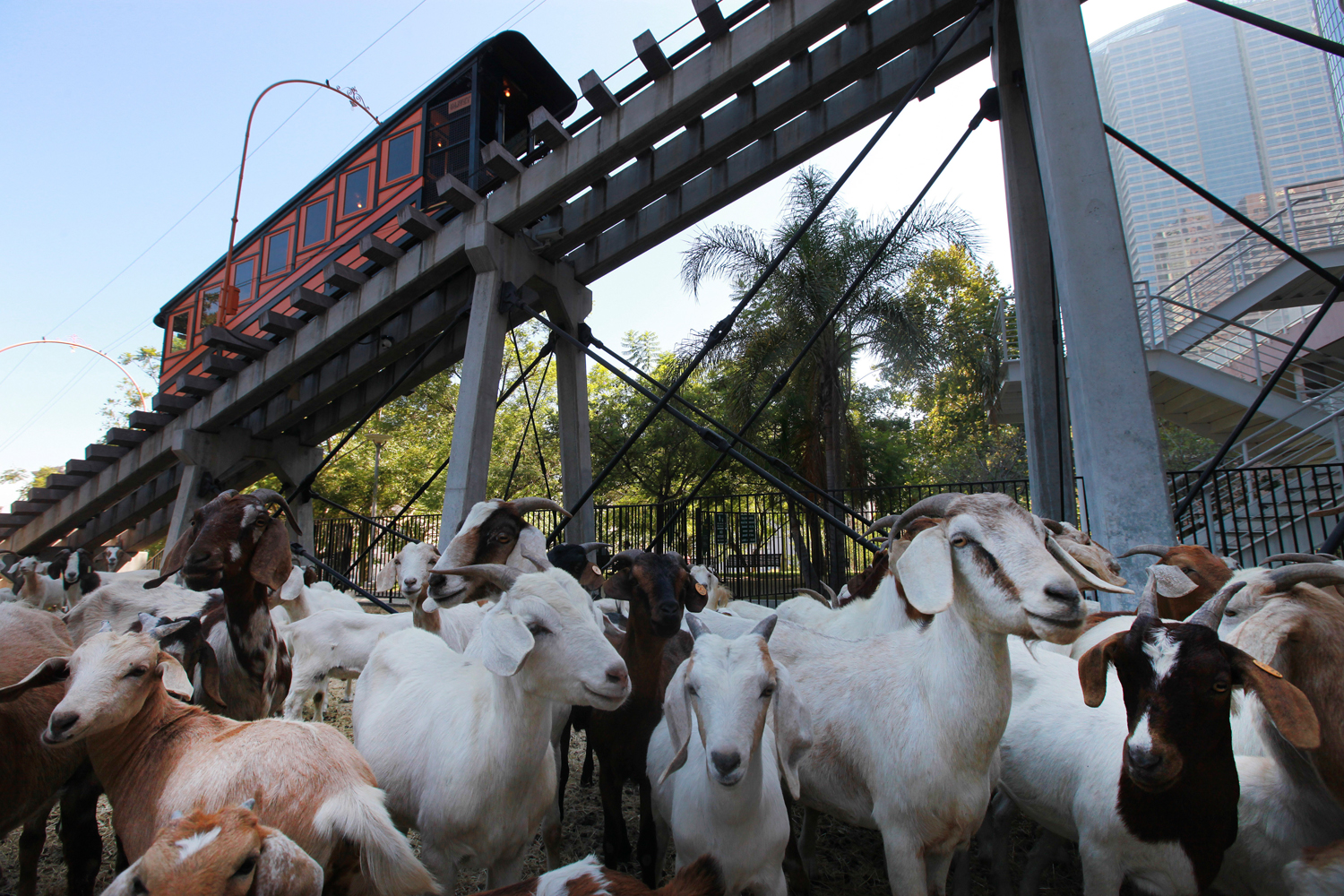The Winnipeg Jets are in La La Land tonight to face the Los Angeles Kings. The 3-3 Jets are coming off of a 4-0 shutout victory over the St. Louis Blues on Monday night, while the 4-4 Kings beat the Tampa Bay Lightning 4-2 on Tuesday night. Head Coach Rick Bowness did not make the trip, while Nikolaj Ehlers did, but is not expected to play. A 9:30pm start means that I will probably be sitting this one out, but maybe I will take a pre-game nap...

We all know what Los Angeles is famous for...

and...

...but there are lots of interesting things that you may not know about the City of Angels...
People often associate Los Angeles with the film industry, but it was actually another industry that built this city. Historically, it was oil that played a major role in Los Angeles’ development. According to the Los Angeles County Office of Oil and Gas, the Los Angeles City oil field was first discovered in 1893 by gold prospectors searching for a different kind of treasure. Yup – it was Edward L. Doheny and Charles A. Canfield who first unearthed this oil field, the historic first well of which is now…. a glamorous swimming pool parking lot. This proved to be an auspicious start because the resulting oil boom generated 45 barrels of oil per day, and within 4 years, there were 500 wells and Los Angeles was leading the country in oil production. Within four decades, Los Angeles would be producing a quarter of the entire world’s oil. Take that Texas! An added fact...An oil derrick on the property of Beverly Hills High School produces about 400 barrels a day. The school earns about $300,000 a year in royalties...

When the city was founded in 1781, it was originally called “El Pueblo de Nuestra Señora Reina de Los Ángeles Sobre el Río Porciúncula”. Things just wouldn't be the same if they kept it...


If you don’t like traffic, you probably won’t like Los Angeles. And, while that isn’t necessarily a secret, this piece of LA trivia about traffic will still shock you. According to CNBC, it’s estimated that Los Angeles drivers spend an average of 119 hours a year stymied in traffic. This comes out to five days, which is a full workweek. For context, think about it as a sizable portion of what most Americans are afforded annually for vacation. Zing. Even more shocking, based on the median hourly wage, it’s estimated the average delays in commuting result in $1,010 lost each year in productivity. Even worse, this extra time requires extra fuel. 21 unnecessary gallons are used per driver, which is a waste of $166 billion, or 3.3 billion gallons of fuel.

When you think of Los Angeles, you likely think of movies, beaches, sunshine, and of course palm trees. However, the history of palm trees in LA may surprise you. In fact, according to KCET, palm trees aren’t indigenous to the region. Just like many people living there, these trees are transplants. While there is one species of palm native to the region (Washingtonia filifera), the most famous and iconic are imported. In fact, in 1931 alone, the forestry division planted over 25,000 palm trees.

Now here's a fun fact that Mark Scheifele might like, goats are an unlikely resource for Los Angeles. But, as NPR describes, they serve a necessary utility in the city. And, while they may not necessarily realize what they’re doing, they’re certainly doing their part by grazing on invasive grasses and dried brush year-round, thereby helping prevent wildfires. They’re so effective that Los Angeles continues to renew its contract with Environmental Land Management to keep their hooves where they are. So yeah, the city of Los Angeles is, quite literally, at the mercy of goats. It’s a good thing they don’t realize the power they have.

If you’re reading this, then you have Los Angeles to thank. Because, as Los Angeles Times reports, on October 29, 1969, the Internet was born there. And, while there are many milestones that were significant in the development of the Internet, Los Angeles’ is truly the genesis. This day marked the first message ever transmitted between the first two computers connected on a new network design. An operator attempted to type ‘LOGIN’ and send it to a sister computer in Menlo Park, California. However, he only made it to ‘LO’ before it crashed. This bug was fixed and within a year, the ARPAnet linked 10 computers nationwide...

In Los Angeles there is a law against licking frogs. The law came into power after some teenagers in Los Angeles found out that a certain type of toad skin contained hallucinogens... That's far out man...

Doing it doggystyle is a crime in Los Angeles. The law only applies to dogs who mate within 500 yards of a church. The act punishable by a fine of $500 and/or six months in prison...
It’s also illegal to drive more than 2000 sheep down Hollywood Boulevard. I guess that would be a baaaad idea, unless of course, they drive themselves...

Go Jets Go!
Thanks to: 20 Interesting & Fun Facts About Los Angeles (Most Visitors Don't Know!), Fun Facts About Los Angeles That Not Even Angelenos Know and 25 Things You Might Not Know About Los Angeles

We all know what Los Angeles is famous for...

and...

...but there are lots of interesting things that you may not know about the City of Angels...
People often associate Los Angeles with the film industry, but it was actually another industry that built this city. Historically, it was oil that played a major role in Los Angeles’ development. According to the Los Angeles County Office of Oil and Gas, the Los Angeles City oil field was first discovered in 1893 by gold prospectors searching for a different kind of treasure. Yup – it was Edward L. Doheny and Charles A. Canfield who first unearthed this oil field, the historic first well of which is now…. a glamorous swimming pool parking lot. This proved to be an auspicious start because the resulting oil boom generated 45 barrels of oil per day, and within 4 years, there were 500 wells and Los Angeles was leading the country in oil production. Within four decades, Los Angeles would be producing a quarter of the entire world’s oil. Take that Texas! An added fact...An oil derrick on the property of Beverly Hills High School produces about 400 barrels a day. The school earns about $300,000 a year in royalties...

When the city was founded in 1781, it was originally called “El Pueblo de Nuestra Señora Reina de Los Ángeles Sobre el Río Porciúncula”. Things just wouldn't be the same if they kept it...


If you don’t like traffic, you probably won’t like Los Angeles. And, while that isn’t necessarily a secret, this piece of LA trivia about traffic will still shock you. According to CNBC, it’s estimated that Los Angeles drivers spend an average of 119 hours a year stymied in traffic. This comes out to five days, which is a full workweek. For context, think about it as a sizable portion of what most Americans are afforded annually for vacation. Zing. Even more shocking, based on the median hourly wage, it’s estimated the average delays in commuting result in $1,010 lost each year in productivity. Even worse, this extra time requires extra fuel. 21 unnecessary gallons are used per driver, which is a waste of $166 billion, or 3.3 billion gallons of fuel.

When you think of Los Angeles, you likely think of movies, beaches, sunshine, and of course palm trees. However, the history of palm trees in LA may surprise you. In fact, according to KCET, palm trees aren’t indigenous to the region. Just like many people living there, these trees are transplants. While there is one species of palm native to the region (Washingtonia filifera), the most famous and iconic are imported. In fact, in 1931 alone, the forestry division planted over 25,000 palm trees.

Now here's a fun fact that Mark Scheifele might like, goats are an unlikely resource for Los Angeles. But, as NPR describes, they serve a necessary utility in the city. And, while they may not necessarily realize what they’re doing, they’re certainly doing their part by grazing on invasive grasses and dried brush year-round, thereby helping prevent wildfires. They’re so effective that Los Angeles continues to renew its contract with Environmental Land Management to keep their hooves where they are. So yeah, the city of Los Angeles is, quite literally, at the mercy of goats. It’s a good thing they don’t realize the power they have.

If you’re reading this, then you have Los Angeles to thank. Because, as Los Angeles Times reports, on October 29, 1969, the Internet was born there. And, while there are many milestones that were significant in the development of the Internet, Los Angeles’ is truly the genesis. This day marked the first message ever transmitted between the first two computers connected on a new network design. An operator attempted to type ‘LOGIN’ and send it to a sister computer in Menlo Park, California. However, he only made it to ‘LO’ before it crashed. This bug was fixed and within a year, the ARPAnet linked 10 computers nationwide...
In Los Angeles there is a law against licking frogs. The law came into power after some teenagers in Los Angeles found out that a certain type of toad skin contained hallucinogens... That's far out man...

Doing it doggystyle is a crime in Los Angeles. The law only applies to dogs who mate within 500 yards of a church. The act punishable by a fine of $500 and/or six months in prison...
It’s also illegal to drive more than 2000 sheep down Hollywood Boulevard. I guess that would be a baaaad idea, unless of course, they drive themselves...

Go Jets Go!

Thanks to: 20 Interesting & Fun Facts About Los Angeles (Most Visitors Don't Know!), Fun Facts About Los Angeles That Not Even Angelenos Know and 25 Things You Might Not Know About Los Angeles
Last edited:





 The Jets are Street fighting men tonight.
The Jets are Street fighting men tonight.


